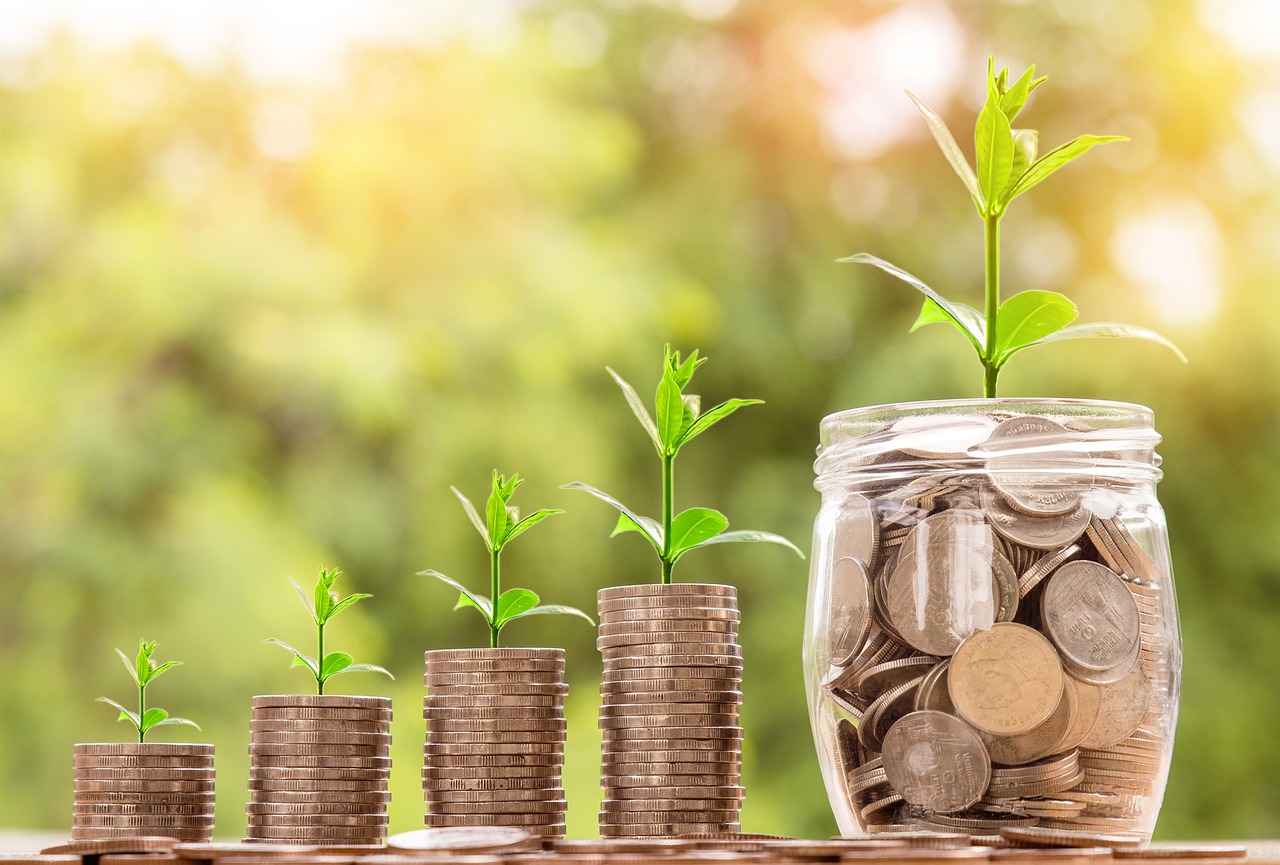Events
Interviews
Monetization
News
Simplecast Essentials
For Networks & Shows
Podcasting Essentials
Insights
Related articles:
On Wednesday afternoon, Sounds Profitable's Head of Content Gavin Gaddis sat down in the Simplecast and AdsWizz booth studio with our Podcast Sales Marketing senior manager Aimi Knowling to talk about the industry and monetization. Gavin (who also writes criticism and knowledge articles for the Simplecast blog) has been in media journalism since 2011, and producing and writing about podcasts since 2017. They attended Podcast Movement 2023 with Sounds Profitable, and dropped by our booth so we could record their insights and leverage their long experience into accessible understanding of the industry and opportunities for podcasters. We’ve condensed some of their advice here for your perusal, as well as the whole episode audio!
An Introduction to Advertising
Gavin took us through several varieties of advertising, and how podcasters can think of them when approaching each one as an option for their show, digging through read styles, dynamic insertion, the perils of baked in, and what’s up with programmatic.
Host-Read vs. Pre-Recorded
Host-read ads are popular in podcasting, a medium where the big selling point, as Gavin pointed out, is the intimacy. “We form parasocial relationships with hosts, we get connected to the characters in fiction shows…it’s not a big sell to a random listener that the people who make a podcast put the effort also into choosing what ads go into their show, into what they're advertising, into their merch being high quality.” Though Gavin noted that pre-recorded shouldn’t be scary – according to the research, the gap between the preferences people have for host-read versus pre-recorded is smaller than many think.
And of course there’s more to ads than just if you, the producer, is reading a script.
Insertion and Programmatic
“There are several podcast hosting services out there right now that if you sign up today, with zero downloads, a brand new RSS feed, there [will be] a tool that you either get or can pay extra for that will allow you to dynamically inserted ads (DAI) into your show.” And in certain circumstances, dynamic ad insertion can be used to make certain every time someone downloads an episode, there’s a new ad for something current and relevant read by you, the host. “I think we’ve all encountered a podcast that’s been around for like, ten years,” Gavin described baked-in ads dryly, “you go listen to an old episode and you hear, like, a MailChimp read from 2015, and the promo code on it is dusty at this point.”
Meanwhile, Gavin is what they jokingly called “programmatic pilled” after having spent all this time at Sounds Profitable reading news and business articles about programmatic advertising. While programmatic advertising isn’t “something that you're necessarily going to bump into if you have 10 downloads", there are companies that will provide some form of dynamic advertising that is programmatically served – ads that are bought and sold using automation. "[Programmatic] is the future of advertising.”
The ultimate question is what kind of relationship with ads do you, as a producer, want to have? You could do everything, handpick every ad perfectly, forge relationships with sponsors, local stores, your favorite brand, and sell a certain percentage of your ad inventory. Or you could set up your categories, make sure your filters are right, and fill 100% of your inventory for a slightly lower CPM (cost per mille, or how much you get paid per 1000 downloads).
“Do you want all of your ad slots filled and you get some money? Or do you want some money and it's only a couple ad slots? And that's the question everyone has to ask themselves. There's no right or wrong about it.”
Alternate Models
Gavin also described “the PBS option”, where the show starts at the top with “This podcast is brought to you ad-free by this company” or “This podcast is sponsored by this company”, and listeners don’t hear from the creator for the rest of the episode. “This [type of show] does not have an ad break because of the company that's sponsoring. I think that benefits the companies that are sponsoring podcasts, and I think that benefits the people making the podcast, because they get to actually make the podcast and it has a flow without ad breaks.”
While ad breaks are necessary, and there’s nothing wrong with an ad-break, certain types of podcasts, such as fiction, would benefit from a style of sponsorship that doesn’t require ad breaks.

Monetization Methods for the Independent Creator
Diversify your revenue stream
The first thing Gavin emphasized was the fact that there are so many different types of integrations that are now easier to implement, and so many ways to make it easy for a listener to be aware of everything you have available. These things combined means you can diversify your revenue stream, and “no one's going to turn their nose up because you have Spotify, Apple, and Patreon, wherever you go with it. There's not going to be, like, a Reddit post about this person monetizing too many places at once. That doesn't happen.”
If you set up a subscription service – like Patreon, the most well-known but certainly not the only anymore – Spotify now has the Patreon integration, in order to make a simple button for people to click in order to support your work. Apple Premium podcast subscriptions mean that someone can just give you money for the sake of you continuing to make the podcast. You can even go to Supercast to set up a subscription service to your show.
“If you make content that people want to listen to and pay for, and if you give them the ability to do so easily, they will.”
Make sure your listeners know how to support you
There is no magic number that you charge per month. If you make it easy for a listener of your show to know that you have bonus content, or old episodes, or even ad-free versions of the episode you just listened to, click this button – you can charge five, six, seven bucks a month, whatever number you want. This is about giving your work value, and not forgetting that there’s going to be someone in you audience who will want to give you more money for what you make.
Gavin related a story they heard at a conference in 2018: a successful podcaster built a Patreon, and then went to Sean Howard of Flightpath to ask why their growth had plateaued. “It turned out this person had like four or five people that gladly would have given more, but their top tier on Patreon was five bucks. They had like people who would have given $20, $50 a month, but they physically couldn't, because there wasn't a tier for it.”
Hit those digital streets
You need to do the research and do the work.
The basics can start with essentially cold-calling people and asking if they want to advertise on you podcast. “If you live in a major metropolitan area, there's totally a chance,” Gavin encouraged. “The best example I can think of is a tabletop role playing podcast going to their local game store that’s big enough that it has its own online component, talk them into giving you a promo code. They lose no money doing that. Or you set up a deal where they do pay you for space on your podcast, because you have the downloads to backup that you will get eyes on this. And they use the promo code as verification that traffic is coming to them through your show.”
But not only that, knowledge is power – and doing your research on who you’re approaching to do business with is crucial. Gavin brings up their long experience with the sentiment of the business side of podcasting as not only a necessary evil, because “you need money to make art”, but the impression newer podcasters have that there’s going to be disdain on the business side. “You need to find the right people who are on your wavelength, but that’s true of any business deal. I can’t go push a car dealership to a pasta company.”
Podcasting is not a fad. Podcasting is here to stay.
We asked Gavin about their thoughts on the currently constant rumblings about the death of podcasting, and Gavin retraced the industry’s recent history.
“In Q4 of last year, all that stuff about ‘a recession is coming’ started catching up to people. And the marketing side of the industry [...] started getting cautious. Then, Q1 rolls around and everyone sort of looks around like, what? It didn't happen really? Now, in the real world, from a normal human being perspective, yes, prices went up [everywhere], there was an impact there – I'm not trying to make it seem like nothing happened. But from a marketing perspective, the sky did not really fall. So in Q1, we spent a lot of time recovering from that.
“And now you're seeing all these reports coming out about the second quarter of the year, where numbers are trending up. I'm not gonna say we're doing better than we were, you know, three years ago or whatever. We're not spiking charts off the scale, which is leading people to say “podcasting boom’s over”. But, they compare charts to like five years ago, or during COVID when things were artificially spiked, because everyone made a podcast. The sky isn't falling, we're doing great.”
Gavin drew a parallel between mediums to connected TV (CTV) – like on a Roku’s streaming services, ads are delivered to streaming services through connected television and right now, we’re seeing a rise in articles about the issues they’re having with monetization and the teething troubles, even though the money CTV is raking in is climbing. (If you’ve seen your three or four commercial breaks in streaming services have the same ads in them multiple times, you’ll know what some of the problems are).
Smash cut to five, even ten, years ago, and the podcast industry had a lot of articles about how podcast ads don’t do this right, or problems attributed exclusively to podcast advertising. “Turns out that’s just what happens when you make a new form of media and you don’t have a lot of the tech figured out all the way yet. No one’s washing their hands of CTV right now.”
Gavin, and frankly the rest of us, really hope everyone will leave behind the narrative that podcasting “is this weird niche little thing that doesn’t have good measurement, good numbers, or good CPM. We absolutely do.”
“I look forward to the idea maturing in the journalistic industry, and with random people around the world, that podcasting is here. And we're not a fad. We're not some new hot thing. We're not coasting off of how cool and new we are. We're coasting off of, we're that good.”
Want more recaps from Podcast Movement 2023?

.jpeg)